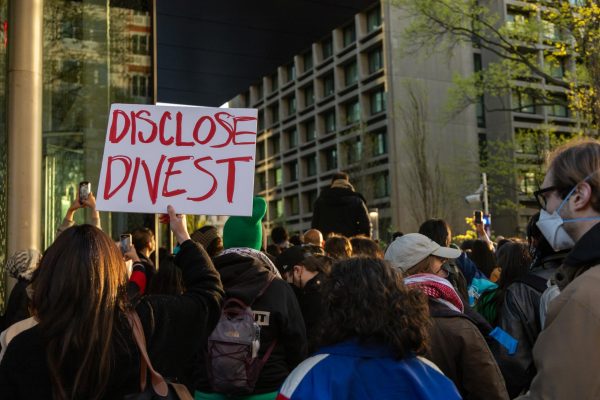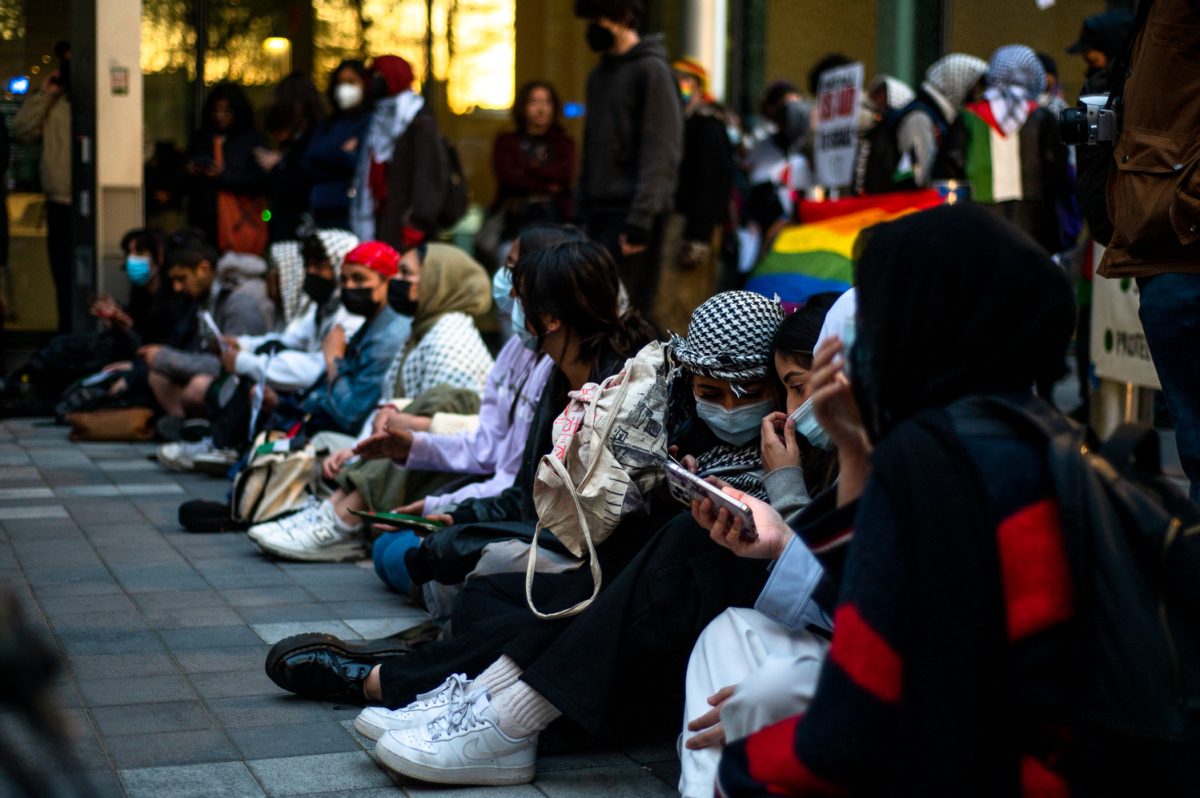Protesters at the Gaza Solidarity Encampment outside the Paulson Center have entered into negotiations with senior administration, an Instagram post from the NYU Palestine Solidarity Coalition states. NYU president Linda Mills is not participating in current negotiations meetings, according to the post.
The protesters’ demands include that the university disclose its financial information, such as investments that are a part of its endowment, and divest from weapons manufacturers and companies with ties to Israel. They are also asking that NYU shut down its Tel Aviv site, pardon disciplinary action taken against pro-Palestinian student protesters and remove police from campus.

Around 50 protesters remain on the NYU student side of the encampment behind metal barricades, and close to 20 are participating from outside, with Campus Safety officers guarding the university-affiliated area. The Paulson Center encampment, which has lasted more than 24 hours, is the second to be set up on campus after its predecessor at Gould Plaza was swept by police Monday evening.
Police have left the current encampment under the conditions that those unaffiliated with NYU remain outside the barricades and that protesters do not violate university policy. When NYU authorized New York City Police Department officers to clear the pro-Palestinian encampment at Gould Plaza on Monday, the university cited protesters it believed to be unaffiliated with NYU having “breached the barriers” set up at the plaza and “disorderly, disruptive, and antagonizing behavior” as causing security and safety concerns that eventually led to student and faculty arrests.
The university’s account of events at Gould Plaza has been challenged by NYU’s chapter of the American Association of University Professors, which said that “at no point were non-NYU people knowingly allowed to join the plaza encampment,” and that there were no instances of incitement or antisemitic behavior from inside Gould Plaza or by NYU-affiliated protesters. The AAUP’s account of events has since been backed by dozens of departmental chairs and directors.
Similar pro-Palestinian encampments have been organized at dozens of universities across the country, with 18 having been met with arrests. The wave of protests has elicited national scrutiny, with the U.S. Department of Education and some Republican congressmembers criticizing universities over reports of antisemitism coming from the protests and organizations like the American Civil Liberties Union and Human Rights Watch raising concerns over demonstrators’ free expression rights.
A spokesperson for NYU did not immediately respond to a request for comment.
Contact Carmo Moniz at [email protected].






















































































































































